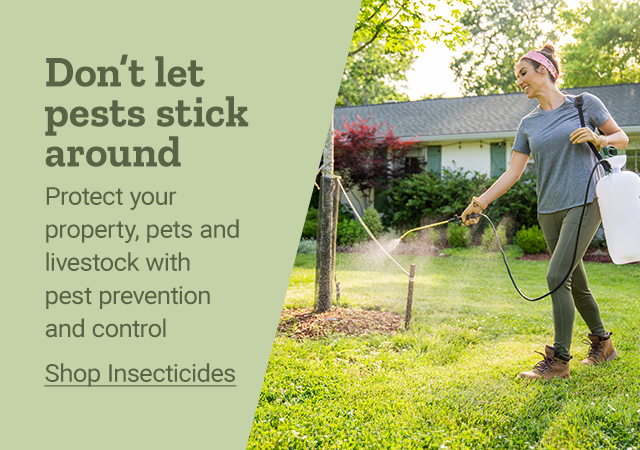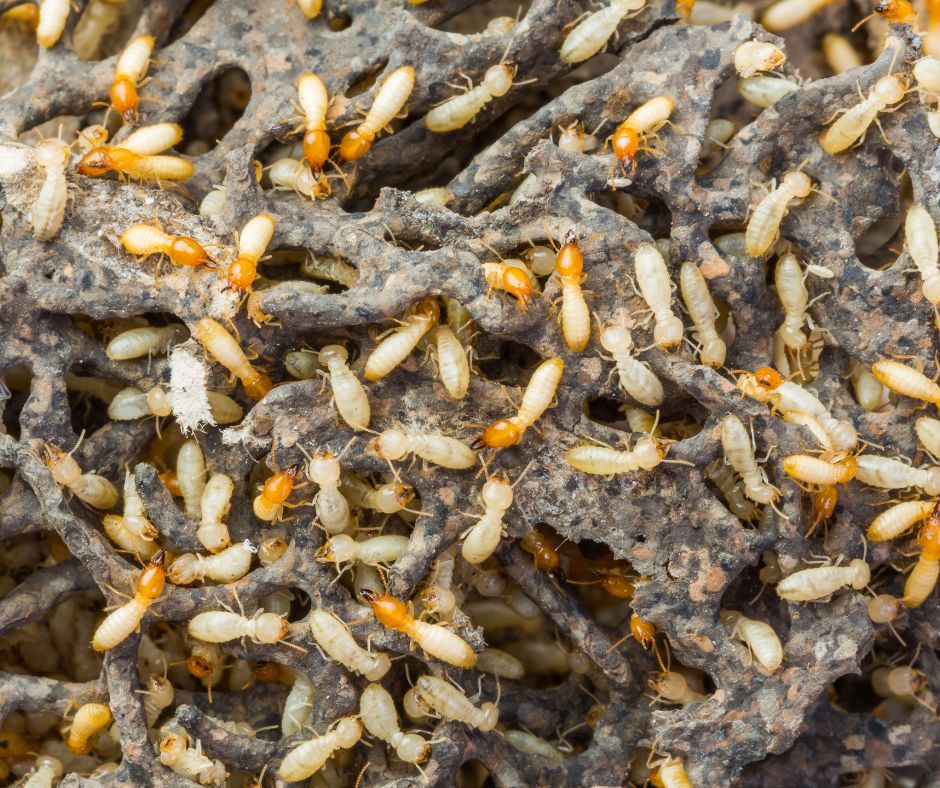Discover the Value of Insect Control in Maintaining a Healthy Environment and Therapy Strategies

The Role of Parasites in Environments
Insects, usually watched solely as nuisances, play a diverse role in communities that is important for keeping ecological equilibrium. They add substantially to different eco-friendly procedures, consisting of pollination, vitamins and mineral cycling, and bug control. For instance, many insect varieties, such as and butterflies, are vital pollinators for a vast array of plants, which subsequently supports biodiversity and food production.
Furthermore, parasites act as victim for various predators, producing a critical web link in food internet. This connection ensures the survival of different types and aids manage populations within ecosystems (Termite treatment Port Charlotte). Furthermore, decomposer insects, such as certain beetles and fungi, contribute in breaking down raw material, hence improving dirt and assisting in nutrition recycling.
On the other hand, while parasites can be beneficial, their overpopulation or intrusion into non-native environments might interrupt these ecological functions. This intricacy emphasizes the value of comprehending insect dynamics, as reliable insect monitoring strategies need to take into consideration both their environmental duties and possible impacts on human activities. Balancing pest visibility while minimizing injury is crucial for preserving the honesty of ecological communities and making certain agricultural performance.
Wellness Dangers Connected With Insects
The existence of insects in various atmospheres extends beyond their ecological functions, as they additionally pose significant health and wellness dangers to pets and people. Many insects, including insects, parasites, and rodents, are service providers of diseases that can have significant health and wellness effects. Rats are recognized to transfer hantavirus and leptospirosis, both of which can lead to serious respiratory and kidney concerns, specifically.
Bugs such as ticks and mosquitoes are notorious for spreading out vector-borne conditions like malaria, dengue fever, and Lyme disease. These diseases can cause high morbidity and mortality rates, especially in prone populaces. Additionally, pests like bedbugs and roaches can exacerbate allergies and bronchial asthma, adding to breathing problems in individuals, especially those with pre-existing conditions.
Furthermore, the presence of parasites can bring about psychological tension and pain, impacting overall well-being. Contamination of food and surface areas by bug droppings and remains can result in foodborne diseases, highlighting the relevance of keeping hygienic problems. Therefore, comprehending the health and wellness dangers connected with parasites is crucial in identifying the need of effective insect management approaches to safeguard animal and human wellness.

Advantages of Reliable Parasite Control
Effective parasite control is necessary for maintaining a healthy and risk-free atmosphere, as it regularly minimizes the many risks connected with parasite invasions. One of the main advantages of effective insect administration is the reduction of health and wellness hazards. Insects such as mosquitoes, rodents, flea control and roaches are vectors for illness that can impact both family pets and people. By regulating these populations, the chance of disease transmission is considerably decreased.
Furthermore, reliable bug control safeguards building and frameworks from damage. Several bugs, like termites and woodworker ants, can create comprehensive architectural damage that might need pricey repairs. By proactively taking care of these businesses, homeowners and invasions can shield their financial investments.
One more considerable advantage is the enhancement of overall lifestyle. A pest-free environment contributes to mental wellness and reduces anxiety associated with invasions. Furthermore, effective parasite control fosters a much safer atmosphere for pets and children, ensuring that homes remain sanctuaries devoid of hazardous chemicals and disease-causing organisms.
Typical Bug Control Methods

In the world of pest management, different techniques are used to deal with problems efficiently. These methods can be generally categorized into 3 main techniques: cultural, mechanical, and chemical controls.
Cultural control includes modifying techniques to lower insect survival, reproduction, and establishment. This might include plant rotation, correct hygiene, and habitat adjustment, which collectively produce an atmosphere much less favorable to pest expansion.
Mechanical control employs physical methods to get rid of pests (Termite treatment Port Charlotte). Techniques such as barriers, traps, and vacuums are frequently utilized to directly remove pests from an area. This method is especially reliable for managing rats and pests without making use of hazardous chemicals
Chemical control entails the application of pesticides to handle parasites. These compounds can be categorized right into fungicides, herbicides, and pesticides, each targeting certain kinds of insects. It is crucial to make use of visit here these chemicals judiciously, adhering to safety guidelines and guidelines to decrease potential harm to non-target types and the setting.
Each bug control strategy has its limitations and advantages, and often, an incorporated technique combining several techniques yields the most effective outcomes in maintaining a pest-free environment.
Sustainable Pest Administration Practices
Sustainable insect administration techniques encompass a series of methods developed to lessen ecological impact while effectively managing parasite populations. These techniques prioritize making use of environmentally pleasant methods over chemical pesticides, thus lowering the danger of harm to non-target types, including valuable insects, wildlife, and humans.
Integrated Pest Management (IPM) is a keystone of sustainable techniques, incorporating biological, cultural, mechanical, and chemical techniques to take care of bugs. For example, organic control includes presenting all-natural killers or parasites to subdue parasite populations. Cultural practices, such as plant rotation and polyculture, interrupt pest life process and boost ecosystem strength.
Mechanical approaches, such as obstacles or traps, can successfully avoid bug accessibility without chemical intervention. Additionally, preserving healthy ecological communities through correct soil monitoring, plant wellness, and biodiversity can normally alleviate insect problems.
Education and awareness are essential elements, empowering individuals and communities to recognize insect threats early and apply precautionary procedures. Termite treatment Port Charlotte. By fostering a holistic method that stabilizes insect control with ecological integrity, sustainable pest management practices not only protect plants and frameworks but additionally add to a much healthier environment for future generations
Final Thought

Comprehending the health threats linked with parasites is important in recognizing the need of efficient parasite management methods to guard human and animal wellness.
Efficient insect control is essential for preserving a site link safe and healthy and balanced setting, as it regularly alleviates the countless dangers associated with insect invasions.Integrated Pest Administration (IPM) is a keystone of sustainable techniques, incorporating biological, social, mechanical, and chemical tactics to manage bugs. By understanding the role of insects, recognizing connected health dangers, and using varied therapy techniques, a sustainable approach to pest management can be attained. Integrated Parasite Monitoring (IPM) stresses an alternative method that minimizes damage to helpful organisms while properly regulating insect populaces.